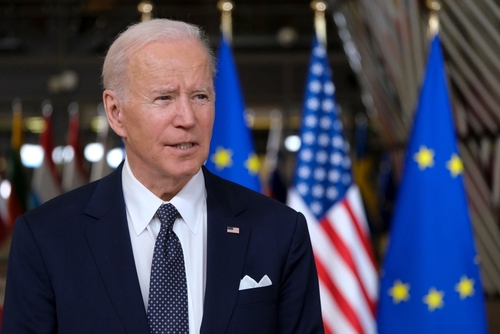Biden’s Chemical Ban Risks US Military Independence

In a move raising concerns across the manufacturing sector and beyond, the Biden administration’s Environmental Protection Agency (EPA) has proposed a rule that could severely restrict a chemical vital to U.S. military equipment production. The proposal, targeting methylene chloride under the Toxic Substances Control Act, is stirring concerns about America’s growing reliance on foreign sources for critical defense materials, particularly from China.
Last year, the EPA moved to ban certain chemicals, including methylene chloride. This chemical is integral in producing bulletproof glass, helmets, and fighter jet canopies — critical components of America’s defense arsenal. The move has prompted urgent warnings from domestic manufacturers. Covestro, a leading polymer manufacturer, expressed in a June letter to the EPA that such a ban would force the U.S. military and police to rely on materials sourced from overseas, particularly China.
China’s rapid ascent as a global chemical powerhouse further complicates this scenario. In less than two decades, China’s share in the world’s chemical sales skyrocketed from 9% to a dominant 44%. Notably, China is the leading exporter of methylene chloride, which raises significant strategic concerns for the U.S., especially given the chemical’s use in specialty batteries and aircraft paint removal.
The Department of Defense has tried to boost domestic production of “high-priority chemicals,” aiming to reduce foreign dependency. However, even with these efforts and potential national-security-related exemptions from the EPA, the proposed ban on methylene chloride threatens to disrupt the mission.
Nalas Engineering Services, a chemical manufacturer working with the Defense Department, highlighted the dilemma in a July letter to the EPA. Despite being allowed to use certain banned chemicals for national security purposes, Nalas expressed concern that the proposed restrictions on methylene chloride would have long-term supply chain implications. Boulder Scientific Company, another chemical manufacturer, echoed these concerns, fearing that a ban could push large producers to seek non-domestic chemical suppliers.
The EPA defended its proposal, claiming it would not impact defense contractors and leave a “sufficient supply” of chemicals like methylene chloride in the market. “The proposals involve a mixture of approaches, including proposed prohibition for certain uses that EPA determined cannot continue safely, as well as for other uses strict workplace controls that allow the uses to continue,” an agency spokesman stated.
Despite the EPA’s assurances, the Department of Energy laboratory has raised alarms. In September, the laboratory criticized the proposed ban, arguing it would limit their ability to detect weapons of mass destruction and conduct complex national defense research.
The American Chemistry Council warned that the new EPA rule would overlap with existing federal safety regulations and lead to substantial supply chain impacts. The EPA’s proposal suggests a rapid scale-down in production, potentially affecting pharmaceutical supply chains and specific safety-critical uses.
This situation presents a classic dilemma: balancing environmental and health concerns with national security and economic realities. As the Biden administration moves forward with its chemical safety rules, the potential for increased reliance on foreign sources for critical defense materials, particularly from China, looms large.
























